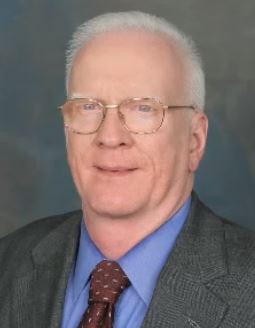Saying attorneys general in 24 states opposing the Biden administration new “Waters of the United States” (WOTUS) rule “have persuasively shown that the new 2023 Rule poses a threat to their sovereign rights and amounts to irreparable harm,” a federal district judge in North Dakota has blocked implementation of the rule in those states.
When combined with a decision handed down in March by a federal court in Texas issuing an injunction preventing enforcement of the WOTUS rule in the Lone Star State and Idaho, U.S. District Judge Daniel Hovland’s April 12 ruling means that the far-reaching Biden plan is no longer in force in over half the country.
“The EPA argues the public will benefit from the added clarity the rule provides,” Judge Hovland said. “Common sense would lead any reasonable person to reach a far different conclusion. The volume of litigation that has generated from the Clean Water Act over the last decades from the federal district courts, the federal courts of appeals, and the Supreme Court of the United States reveals nothing but chaos and uncertainty.”
The preliminary injunction means that WOTUS is no longer the law of the land in Alabama, Alaska, Arkansas, Florida, Georgia, Indiana, Iowa, Kansas, Louisiana, Mississippi, Missouri, Montana, Nebraska, New Hampshire, North Dakota, Ohio, Oklahoma, South Carolina, South Dakota, Tennessee, Utah, Virginia, West Virginia, and Wyoming, along with Texas and Idaho.
“Unworkable Bureaucratic Decree”
Iowa Secretary of Agriculture Mike Naig welcomed the ruling.
“Iowa farmers must be ready to operate freely using modern farming practices and we do not need this unworkable bureaucratic decree hindering our efforts to accelerate the adoption of proven conservation and water quality practices,” he said in a statement.
The December 2022 Biden WOTUS rule, which would give the Environmental Protection Agency and the U.S. Army Corps of Engineers vast power over private land, is vigorously opposed by farm groups. They include the American Farm Bureau Federation, American Cattlemen’s Beef Association, National Corn Growers Association, National Pork Producers Council, and U.S. Poultry and Egg Association.
Republican-led efforts to overturn the rule using the Congressional Review Act passed the House and Senate with some Democrat support in March, but President Biden vetoed the bill.
In his order, Judge Hovland said the states covered by his ruling would “expend unrecoverable resources complying with a rule unlikely to survive judicial scrutiny.”
Decision in Sackett Case Pending
The ruling comes two months before the U.S. Supreme Court is expected to hand down a WOTUS decision in Sackett v. EPA. That case involves an Idaho couple who were forced by EPA to cease construction on their home next to Priest Lake in the northern part of the state. EPA threatened to impose fines of up to $37,500 a day if work wasn’t stopped. Agency officials charged the couple with violating the Clean Water Act’s (CWA) provisions against discharging materials into “waters of the United States.” The case has dragged on for nearly 16 years, with the Sacketts maintaining they did not discharge materials into bodies of water regulated by EPA or the Corps.
A Fine Mess
Under the 1972 CWA, EPA and the Corps are charged with regulating discharges into “navigable waters of the United States.” But over the decades, EPA and the Corps have expanded their regulatory writ to include bodies of water that are by no means “navigable.” What was intended to be a water quality statute became a tool EPA used to regulate the use of land. The resulting confusion over where federal regulatory authority begins and ends has been the source of endless litigation and confusion. Two ambiguous Supreme Court decisions from the 2000s failed to resolve the issue.
The Obama administration attempted to “clarify” the scope of federal regulatory authority of WOTUS by developing a rule that imposed de facto federal zoning over millions of acres of private land. Federal courts overturned certain sections of the Obama rule, and the Trump administration rewrote the rule, prohibiting EPA from regulating such things as drainage ditches, stock ponds, and ephemeral bodies of water. Biden’s team did away with the Trump rule, reinstating much of the federal-zoning character of the Obama scheme.
This is the fine mess Judge Hovland addressed in his ruling, and on which the Supreme Court will render a verdict in June.
* This article was originally published here
PUBLISH WITH US!
The Washington Gazette works at our discretion with businesses, non-profits, and other organizations. We do not work with socialists, crony capitalists, or disinformation groups. Click the green button below to view our services!
HELP STOP THE SPREAD OF FAKE NEWS!
SHARE our articles and like our Facebook page and follow us on Twitter!





0 Comments